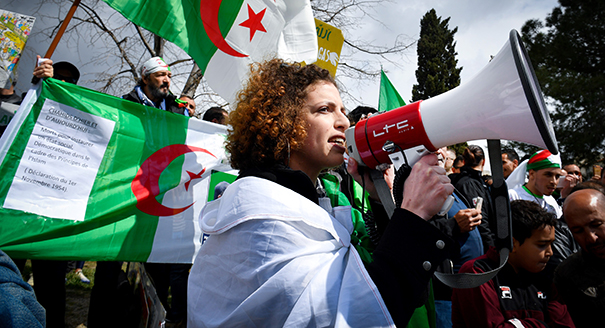Registration
You will receive an email confirming your registration.
In February 2019, millions of Algerians began protesting against a fifth term of their ailing 82-year-old then-president, Abdelaziz Bouteflika. The popular movement caught the regime off guard, leading to Bouteflika’s resignation within a matter of weeks. However, Algerians are keeping up the pressure, and their leaderless, peaceful movement has shown no signs of waning.
The Carnegie Middle East Center held a panel discussion that examined the present situation and considerd possible future outcomes in Algeria in 2019. It focused on the characteristics of the protests, the role of the opposition and Islamists, possible resolutions to the current political impasse, and the attitude of the armed forces, who remain the real locus of power. The event also touched upon the potential spillover of the protests into Morocco, Libya, and beyond.
SPEAKERS
Younes Abouyoub is a former political adviser to the UN special respresentative of the Secretary-General.
Haizam Amirah-Fernández is a senior analyst at the Elcano Royal Institute and an associate professor at the Instituto de Empresa (IE).
Amel Belaid is the founder of APOTHEOX Consultancy and an oil and gas consultant.
Dalia Ghanem is a resident scholar and expert on Algeria at the Carnegie Middle East Center.
MODERATOR
Loulouwa Al Rachid is a visiting fellow at the Carnegie Middle East Center.
